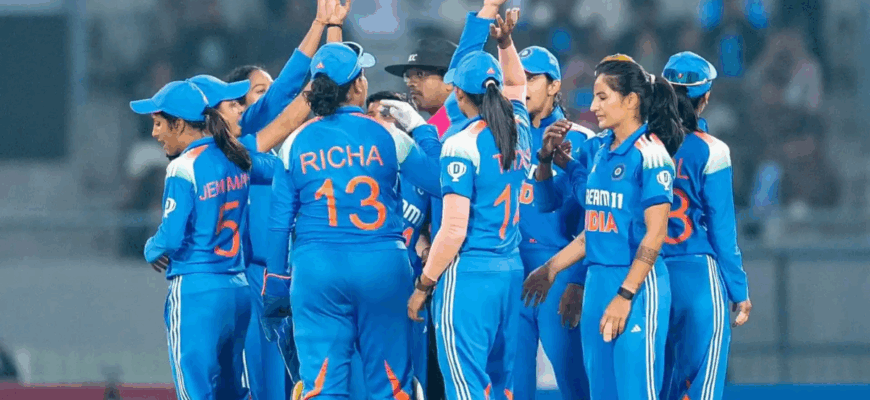The roar of the crowd, the tension of a record chase, and the heartbreak of defeat — the recent Women`s ODI World Cup clash between India and Australia had all the hallmarks of a classic. Yet, amidst the on-field heroics and the strategic chess match, a less dramatic but equally significant event unfolded off the pitch: a penalty from the International Cricket Council (ICC) for the India Women`s team.
It`s a familiar subplot in the modern game: the slow over-rate. For every minute spent beyond the allotted time, for every over unbowled, there’s a ticking clock, and eventually, a price to pay. In this instance, following their gripping encounter with Australia, India found themselves on the wrong side of Article 2.22 of the ICC Code of Conduct. The verdict? A fine of five per cent of their match fees, imposed by Michell Periera of the Emirates ICC International Panel of Match Referees, for being just one over short of their target after time allowances.
One might wonder, does a single over truly make a difference? In the grand theatre of a World Cup, where moments of brilliance and lapses in concentration dictate destinies, every second counts. Slow over-rates aren`t just about adhering to a schedule; they affect the flow of the game, impact spectator experience, and can even influence strategic decisions, forcing captains to rush through overs with suboptimal bowlers. The ICC`s strict stance aims to maintain the pace and integrity of the game.
The penalty arrives on the heels of a particularly bruising contest. The match itself was a spectacle, with Australia pulling off a record-breaking chase to secure a memorable victory over India. Losing by three wickets in such a high-scoring affair would sting enough. To then receive a financial penalty for a procedural infraction must feel, to some extent, like adding insult to injury – or perhaps, a swift dose of reality to an already difficult pill to swallow.
Captain Harmanpreet Kaur, ever the leader, accepted the sanction without dispute, pleading guilty to the offence. This acknowledgment speaks volumes, indicating a professional acceptance of the rules, even when the timing is less than ideal. The umpires — Sue Redfern, Nimali Perera, third umpire Kim Cotton, and fourth umpire Jacquline Williams — meticulously tracked the proceedings, ensuring the rules were upheld, a testament to the rigorous officiating in international cricket.
As India prepares for their next “must-win” clash against England, this fine serves as a stark reminder that even in the heat of battle, discipline extends beyond the boundary ropes. While the financial penalty itself might be minor in the grand scheme of professional sports, its psychological impact, especially coming after a tough loss and before a crucial fixture, could be more profound. It forces a team to re-evaluate their time management on the field, ensuring that tactical discussions and bowling changes don`t inadvertently cost them in other ways.
In a sport where narratives are often built around spectacular catches, towering sixes, and nail-biting finishes, this incident reminds us of the less glamorous, yet crucial, elements of professional cricket. The clock, it turns out, is as relentless an opponent as any bowler or batter, and its watchful eye ensures that even the most thrilling contests adhere to a precise rhythm. For the India Women`s team, it’s a lesson learned, a small bump on a challenging World Cup journey, as they now turn their focus to the task at hand: ensuring victory against England, and perhaps, keeping a closer eye on the clock.







